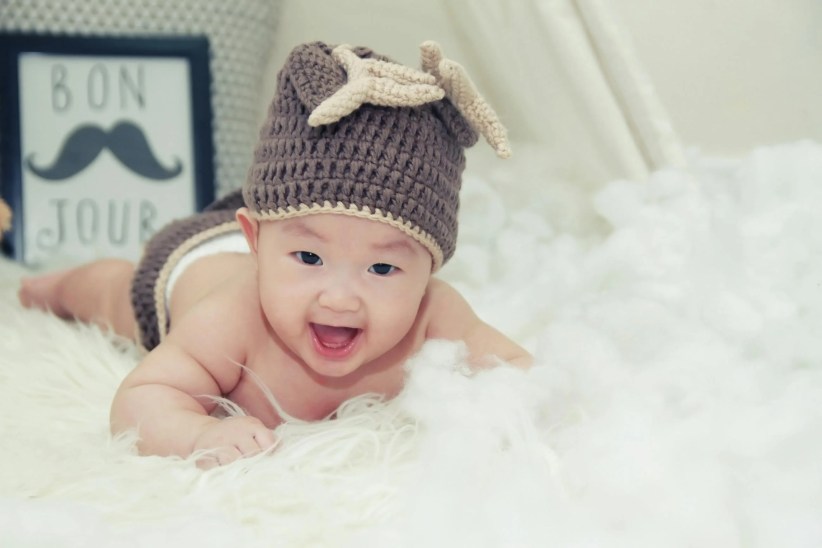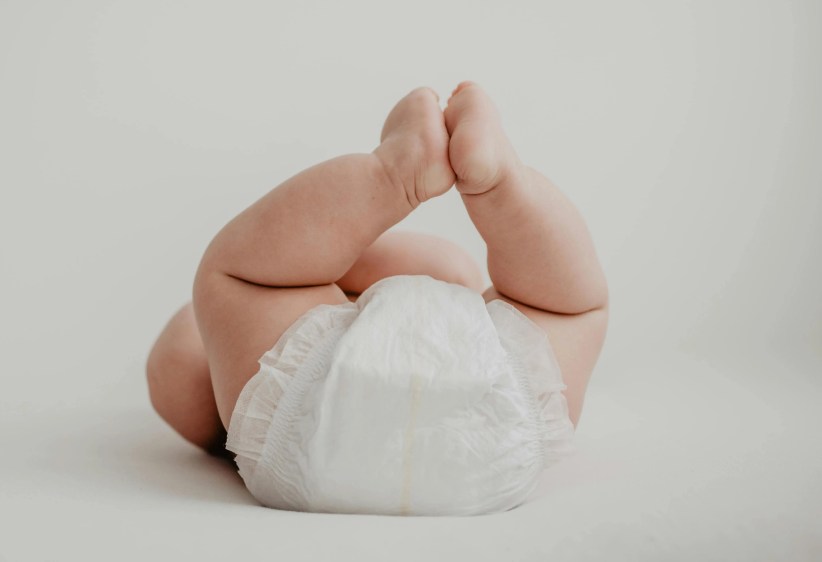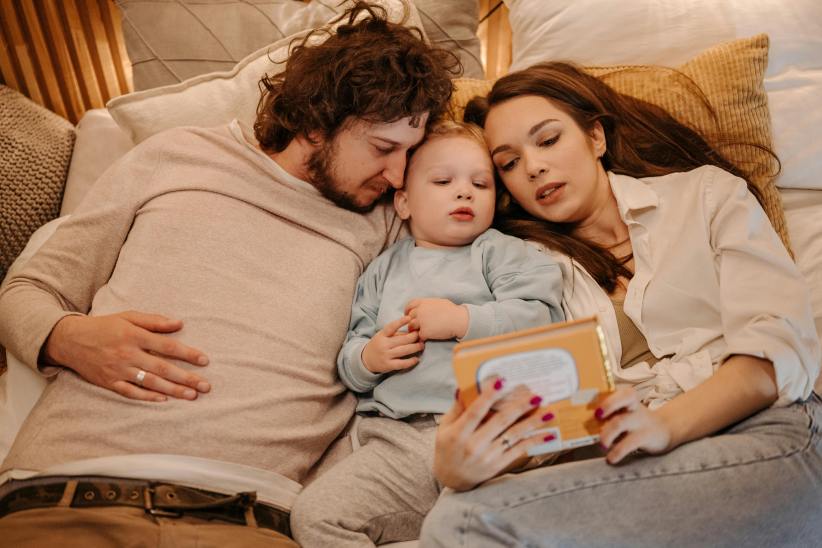 Despite the many stresses and challenges of having a child, motherhood is typically described as one of the greatest joys a woman can experience. Parenthood isn’t easy, but new and expectant mothers are often stereotyped as bubbly, overjoyed people who see their child (or children) as their whole world. But what happens when a new mom isn’t happy? When she isn’t enthusiastic and excited, but constantly anxious and filled with dread? When she feels depressed and annoyed, and thinks that having children might have been the wrong decision? What if she doesn’t know if she can even love her child?
Despite the many stresses and challenges of having a child, motherhood is typically described as one of the greatest joys a woman can experience. Parenthood isn’t easy, but new and expectant mothers are often stereotyped as bubbly, overjoyed people who see their child (or children) as their whole world. But what happens when a new mom isn’t happy? When she isn’t enthusiastic and excited, but constantly anxious and filled with dread? When she feels depressed and annoyed, and thinks that having children might have been the wrong decision? What if she doesn’t know if she can even love her child?
While these feelings may sound strange to some, they are actually all symptoms of post-partum depression (PPD), a common mental disorder that affects between 15-20 percent of women worldwide. While PPD used to be thought of as a rare mental illness, appearing in new mothers only a couple of weeks after birth, it can actually occur anytime between pregnancy and the first year post-birth of any child, not only a woman’s first. On top of all this, PPD is hard to diagnose in its early stages because it is very similar to the much less severe “baby blues” a mother may feel while pregnant and just after birth. Doctors expect women to have mood changes after they have children because their hormones drop so drastically, and they are extremely sleep-deprived from the demands of the new baby.
“Up to 85 percent of women experience the baby blues, so we can actually consider this a normal experience following childbirth,” says Dr. Kristin Wesley, MD, at the Women’s Program in Psychiatry at Columbia University. “Rather than feelings of sadness, women with the blues more commonly report feeling up and down, suddenly bursting into tears and not knowing why. They can also be anxious or irritable. Some women report that they feel ‘PMS-like.’”
However, symptoms of the baby blues usually go away within two weeks of delivery, and don’t interfere with a woman’s ability to function. “In contrast to this, post-partum depression lasts beyond two weeks and is characterized by [a] very low mood throughout the day, as well as changes in sleep, appetite and energy,” Wesley adds. “[Identifying PPD] can sometimes be confusing because symptoms of depression can be similar to the mood swings women have during pregnancy,” notes Dr. Alexandra Goletka, Psy.D at Parenthood Psychology Practice on the Upper East Side. “But in addition, women with PPD may have excessive worry [or] anxiety, irritability, feelings of being overwhelmed, sad mood, hopelessness, physical complaints with no physical cause, discomfort around the baby or lack of feeling toward the baby, loss of focus and concentration.”
Additionally, symptoms of PPD tend to be all-consuming, impacting nearly every facet of a new mom’s life. “You know it’s post-partum depression when it affects everything. You no longer find joy in anything,” says Dr. Marianna Strongin, Psy.D, Goletka’s partner at Parenthood Psychology.
“And even that [feeling] is very hard to identify because before you had a baby, you had a very different standard of what you used to enjoy. But I always say it’s post-partum depression when the attachment between mother and child is heavily affected. I’ve seen women in their ninth month of post-partum depression who say they feel worse than they did in their third month. There is no distinct picture [of PPD], and it can range in severity.” Besides being hard to diagnose, many women try to hide their depression or refuse to admit anything is wrong, because of the stigmas attached to mental illness in the U.S. Unlike a broken arm or the flu, PPD is an “invisible” ailment which can go undetected (or even be denied) by friends and loved ones. The fear of being labeled as “crazy” is daunting enough, but when feelings of instability are directly tied to your child, a new life whom you are supposed to cherish as a gift, the guilt and anxiety can become even worse.
“Women with PPD often withdraw because they don’t understand why they feel so bad,” Goletka says. “They also report just going through the motions with their new baby, and feel like their child could be someone else’s child. This leads to feelings about being the worst mother/wife. Don’t let looks fool you—women with PPD often look put together complete with makeup and jewelry, even a smile. The more a mother feels depressed, the more she overcompensates.”
“In support groups, I’ve been really surprised to find that the women who are the best-dressed and the most put together with the babies who seem the best behaved are the ones who tell me they have been struggling with depression,” Strongin adds. ”They try so hard to cover it up. One of the reasons I’ve started to make appointments at people’s homes…is because post-partum women would come to my office looking like they were not depressed. They spend all these hours trying to hide how they actually feel.”
PPD can affect any new mother, but it is treatable and can be managed, usually through therapy and medication. Wesley notes that medication does diffuse into breast milk, though she adds that there are safe options that are essentially non-detectable in infant blood levels. Exercise, a healthy diet, and social interaction are also recommended. Likewise, a support group for new mothers—even an unofficial one—can be very helpful.
“I really encourage mommy groups from a very young age, about one week old,” Strongin says. “It’s really going to be another mom who understands that experience, and who can confide in you and talk to you. Moms can feel very isolated at home with the baby, but fortunately it’s very easy in New York to find other moms. You go anywhere and you see a stroller and you ask how old the baby is and boom, there is [your connection to another mother].”
There is no official known cause for PPD, nor any methods of prevention. Mothers with a history of past mental illness themselves or in their families can be more at risk, but that doesn’t always mean they’ll have PPD. Similarly, women with no personal or familial history of mental illness can be diagnosed. The best strategy is to simply be prepared and have a strong support system in place.
“It is good for expectant couples to educate themselves about both childbirth and parenthood,” Wesley says. “Taking some parenting classes at a local community center can help people have a better idea of what the demands and requirements of a new baby will be in advance, and enables couples to plan. I encourage my patients and their partners to think together realistically about who in their family or friend network can give them concrete support in the early days post-partum. Who can help bring groceries or meals, help do the laundry, stay with the baby for an hour to give the parents a break? If a couple does not have people nearby who can do this, it might make sense to plan for a post-partum doula or some babysitting help in the early days. The demands are intense, and even a little bit of help from outside can make a big difference for everyone.”
If you know someone who is suffering from PPD, it is important to reach out to them and show your willingness to provide support. If you think they should seek treatment, come up with a plan to talk to them in a non-confrontational, supportive way.
“Explain the research that you have read and how [PPD] impacts families, and help them come to terms with this illness,” Goletka advises. “It is treatable and the sooner it is addressed, the better everyone is in the long run. Pediatricians are often the first people to spot PPD in new mothers, as new mothers are at the pediatrician a lot. If you are nervous about your friend, go with her to the pediatrician and ask general questions about depression to help aid the conversation.”
But perhaps the most important advice for mothers suffering from PPD is to try and take the pressure off of themselves, and remember that there is no such thing as the “perfect parent.”
“It helps for expectant parents to realize in advance that a new baby does not come with instructions, and there is a lot to learn as a new parent,” Wesley says. “Most people feel a bit unskilled and overwhelmed at first, and for people who are used to being quite competent, this can be a challenge. Babies also bring a lot of chaos, and for people who are accustomed to having a lot of control over their schedules, this can be difficult… Perfectionism about parenting can only bring unhappiness. It serves expectant parents better to adopt the attitude that you only need to be a ’good-enough’ parent, and that you will learn about your baby and his or her particular needs as you go, and there will be problems that you can address together.”





















